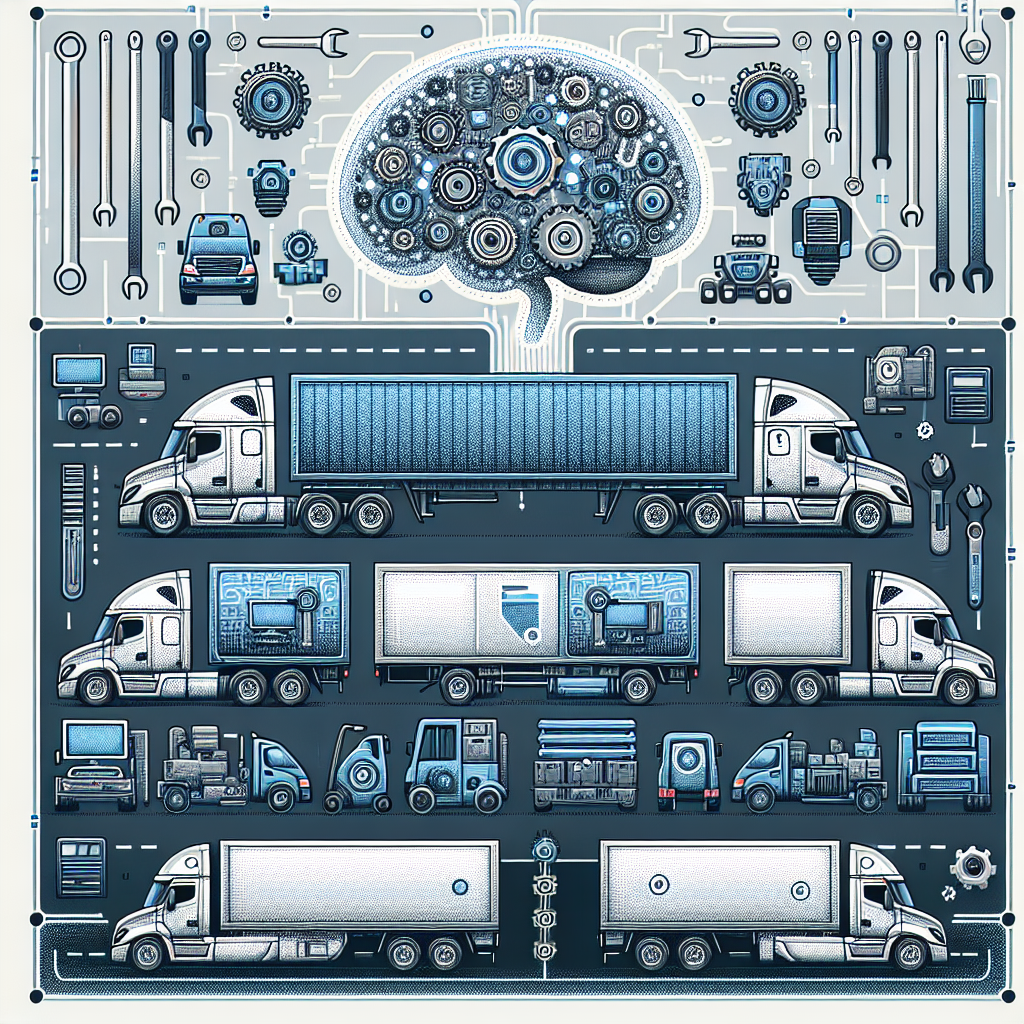With the rapid advancement of technology, artificial intelligence (AI) has become increasingly prevalent in various industries, including transportation. One area where AI is making a significant impact is in fleet management and maintenance. Fleet management involves overseeing a company’s fleet of vehicles, while maintenance involves ensuring these vehicles are in optimal condition to operate safely and efficiently. AI is revolutionizing how fleet managers and maintenance personnel approach these tasks, leading to improved productivity, cost savings, and overall efficiency.
One of the key ways AI is transforming fleet management is through predictive maintenance. Traditionally, maintenance schedules are based on time or mileage intervals, which can lead to unnecessary maintenance or missed issues that can result in costly breakdowns. AI, however, can analyze real-time data from vehicles, such as engine diagnostics, fuel consumption, and driver behavior, to predict when maintenance is needed. This predictive maintenance approach allows fleet managers to address issues before they become major problems, reducing downtime and increasing the lifespan of vehicles.
Furthermore, AI can also optimize route planning and vehicle utilization, leading to cost savings and improved efficiency. By analyzing historical data, AI can identify the most efficient routes for vehicles, taking into account factors such as traffic patterns, weather conditions, and driver preferences. This optimization can help fleet managers reduce fuel consumption, minimize wear and tear on vehicles, and improve overall productivity. Additionally, AI can help fleet managers track vehicle performance in real-time, allowing them to make adjustments as needed to ensure vehicles are operating at peak efficiency.
Another way AI is impacting fleet management is through driver behavior monitoring. By using sensors and cameras installed in vehicles, AI can analyze driver behavior, such as speeding, harsh braking, and idling, to provide feedback to drivers and fleet managers. This monitoring can help improve driver safety, reduce fuel consumption, and lower maintenance costs by identifying and addressing risky driving habits. Additionally, AI can help fleet managers identify high-performing drivers and provide incentives to encourage safe and efficient driving practices.
In addition to fleet management, AI is also transforming maintenance processes in the transportation industry. AI-powered diagnostic tools can analyze vehicle data to identify potential issues and recommend the appropriate course of action. This proactive approach to maintenance can reduce downtime, extend the lifespan of vehicles, and lower maintenance costs. AI can also streamline the maintenance process by automating scheduling, parts ordering, and repair tracking, allowing maintenance personnel to focus on more complex tasks.
Furthermore, AI can improve inventory management by analyzing historical data to predict when parts will need to be replaced and ensuring that the necessary parts are available when needed. This can help prevent delays in maintenance and reduce the risk of breakdowns due to unavailable parts. Additionally, AI can optimize maintenance schedules by prioritizing tasks based on criticality and resource availability, leading to more efficient use of time and resources.
Overall, the impact of AI on fleet management and maintenance in transportation is significant. By leveraging AI-powered tools and technologies, companies can improve productivity, reduce costs, and enhance overall efficiency. As AI continues to evolve, we can expect to see even greater advancements in fleet management and maintenance, ultimately leading to safer, more reliable transportation systems.
FAQs:
Q: How can AI help improve fleet management in transportation?
A: AI can improve fleet management by enabling predictive maintenance, optimizing route planning, monitoring driver behavior, and tracking vehicle performance in real-time.
Q: How can AI enhance maintenance processes in the transportation industry?
A: AI can enhance maintenance processes by providing proactive diagnostic tools, automating scheduling and parts ordering, optimizing maintenance schedules, and improving inventory management.
Q: What are the benefits of using AI in fleet management and maintenance?
A: The benefits of using AI in fleet management and maintenance include improved productivity, cost savings, increased efficiency, enhanced safety, and extended vehicle lifespan.
Q: How can companies implement AI in their fleet management and maintenance operations?
A: Companies can implement AI in their fleet management and maintenance operations by investing in AI-powered tools and technologies, training personnel on AI applications, and partnering with AI vendors and service providers.

